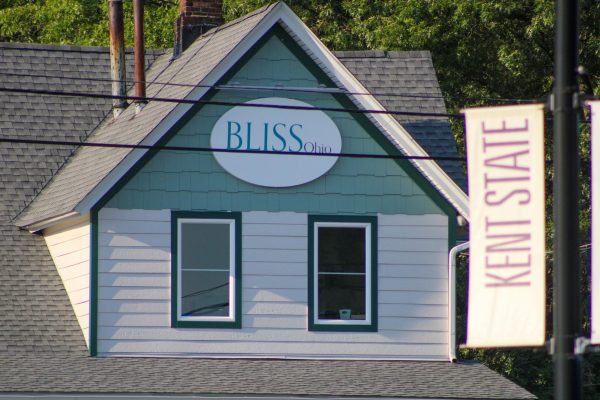With the recent statewide legalization of marijuana, students have questioned what smoking guidelines on campus will look like.
Last November, the citizen-petitioned Issue 2 was passed by a majority vote. It was signed into law and put into effect in December 2023. The law legalized recreational marijuana and set regulations for growing, selling and possessing it. The legislation also devised additional protections for of-age individuals who choose to engage in permitted cannabis use.
With its passage, Issue 2 set up new potential for marijuana sales in Ohio. Since then, dispensaries have opened in many major cities, including multiple in and around Kent.
Issue 2 may have introduced new confusion about marijuana use on campus, but the policies remain the same. Even though it is now regulated and legal in the state and more accessible than ever, Kent State students do not simply have free rein to use cannabis.
The drug is not allowed on campus, medically or recreationally. Kent State’s Division of Student Life states that the university is still “committed to maintaining a drug-free campus,” and therefore, the presence of cannabis on campus is strictly prohibited.
“I know weed isn’t allowed … I feel like they [the regulations] are important. As much as some people are annoyed by them, they’re there to keep people safe and stuff,” sophomore nursing major Honna Bonde said.
Although, Bonde said she felt there could be more tolerance for non-recreational cannabis use “as long as it’s not like being smoked in the dorms.”
Bliss Ohio, located across from campus on East Main Street, opened in April 2023 as a medicinal dispensary. They aim to use medical cannabis to treat varying conditions that “limit people’s ability to live their life to its fullest.”

Now, with Issue 2 in full effect, Bliss Ohio has recently introduced the sale of recreational marijuana products.
Since it is just walking distance from Kent State’s campus, of-age students now have full access to a functioning dispensary.
Some students may wonder why the university is abstaining from updating its rules based on the new developments in the state; it is likely the policy will never budge.
Under the provisions of the Drug-Free Schools and Communities Act (DFSCA), amended in 1989, all state entities are required by federal law to use a portion of federal grant money to promote and introduce a drug-free school zone.
The DFSCA amended the Higher Education Act of 1965, adding a condition that bars universities from receiving federal funding, including federally funded student loans, unless the school proves initiative to prevent the use of drugs and alcohol on campus.
Senior visual communication design major Sprout Dickerson said they “feel meh about” the policies.
“The people who want to smoke will regardless because that’s always what’s happened on campus,” Dickerson said.
Although many state legislatures and citizen initiatives have opted to legalize the substance, its use remains a crime on the federal level. Because of this, it cannot be present in federally-funded institutions like public education.
This does not exclude Kent State or any other schools in states where marijuana has been legalized. Students can choose to participate, but consequences will continue to exist within the university: warning up to dismissal after the first offense, probation up to dismissal after the second offense.
The use of the drug will remain likely prohibited on campuses unless the DFSCA is amended or it is legalized on the federal level.
Ari Collins is a reporter. Contact her at [email protected].












Karmyn Allen • Sep 7, 2024 at 4:00 pm
oh mother ate